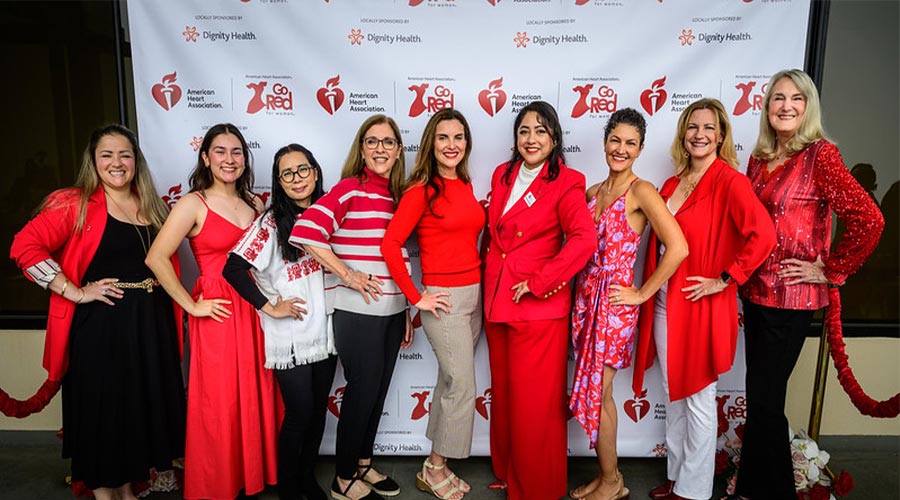
To talk with Laurie Sewell is to be inspired. She is the president and CEO of Servicon, a facilities solutions company based in Culver City, California, ISSA president for 2024-2025, and a board member for the Los Angeles Economic Development Corporation. Laurie also serves on the Los Angeles area executive leadership team for “Go Red for Women,” the American Heart Association’s national movement to end women’s heart disease.
Laurie got involved with Go Red for Women five years ago when she was contacted by someone who worked for the American Heart Association and was looking for advocates.
“It was perfect timing,” Laurie recalls.
Heart disease is personal for Laurie. Her father had heart issues throughout his life, which is maybe why she thought heart disease was more of a “man’s thing”. That was until one night, she noticed her own “weird heart rhythm” while sitting in silence.
“My heart was doing extra beats,” she recalls. “I learned I had PVCs (premature ventricular contractions), which required a heart ablation. That experience made me very aware of women and heart disease.”
The American Heart Association notes that cardiovascular disease kills more women than all forms of cancer combined, but only 44 percent of women know that cardiovascular disease is their greatest health threat. In fact, until Congress passed a 1994 law requiring the inclusion of women in clinical research, the connection of women to heart disease wasn’t very well known.
Spreading the word about women and heart disease is where Laurie and her Go Red for Women colleagues come in.
“We help create awareness of the impacts of cardiovascular disease on women through education, advocacy, and community engagement. We encourage women to be aware of risk factors and to prioritize prevention,” Laurie explains. “There are many stories of women who experience heart symptoms, but a typical scenario is that they pack lunches for their kids, get them to school, and then they drive themselves to the hospital. We’re working hard to get women to take better care of themselves.”
It’s all about changing perceptions. Historically, heart disease was seen as threat toward men, but it’s actually the No. 1 cause of death in women.
“Because we as women present differently than men do during a heart attack, the medical community didn’t really recognize the severity of the impact on women,” says Laurie. “We are now bringing awareness to women’s heart symptoms and the need for research.”
Laurie and her Go Red for Women executive leadership team spearhead a major fundraising luncheon every year and participate in the American Heart Association's 'Heart and Stroke Walk.' She also works with survivors of heart disease to help get their stories told and connects with other organizations to further spread the message.
“I share a lot with my frontline team members, with friends, and on LinkedIn,” she says. “In every conversation I’ve had, particularly with women, they usually have one of two responses, either ‘I had no idea about heart disease being the No. 1 killer of women,’ or ‘I didn’t know heart attacks are different for women than for men.’”
Laurie’s heroes are all the women survivors of heart disease who want to share their stories.
“Usually, they are very humble, and they get up in front of a large crowd of people and proudly and boldly talk about their experiences,” says Laurie. “People remember things when someone tells their own personal story. You can give statistics and numbers, but sharing from the heart is the most important way to educate and inspire people.”
Gretchen Roufs, a 25-year janitorial supply industry veteran, owns a marketing and public relations company in San Antonio. To suggest someone you think should be featured in “Freetime,” contact her at Gretchen@GretchenRoufs.com.

 Celebrating BSCAI's 60th Anniversary eBook
Celebrating BSCAI's 60th Anniversary eBook The Down and Dirty on Cleaning in Virus Season
The Down and Dirty on Cleaning in Virus Season How Surfactant Use is Expanding in Commercial Cleaning
How Surfactant Use is Expanding in Commercial Cleaning